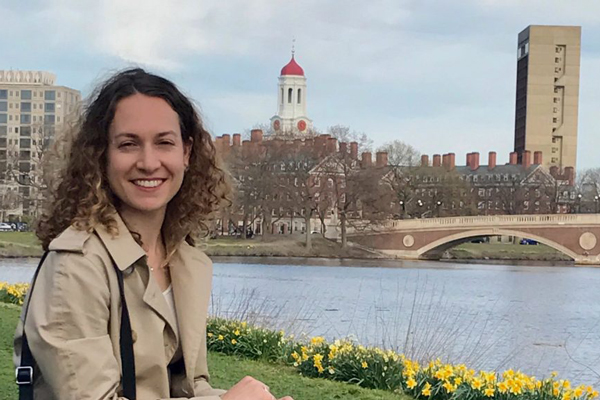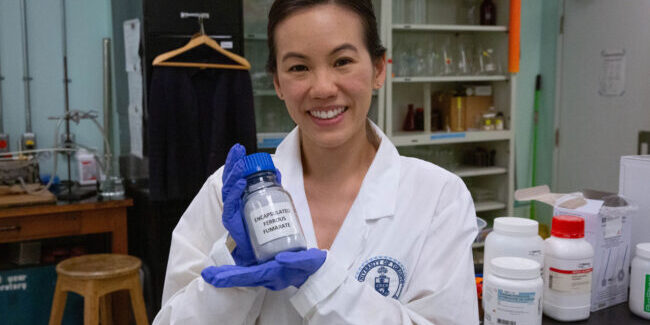When Meghan Wright signed up to pursue her PhD in biomedical engineering at the University of Toronto, she didn’t know that she would also have the opportunity to complete part of her degree at another world-class institution.
“I was awarded a federal government scholarship at the end of my second year [of doctoral studies] that had a foreign study award associated with it,” said Wright. “My supervisor recommended it and I jumped at the opportunity to live in a different city and experience a different lab environment to learn new skills that would enrich my PhD research.”
Wright, who studies with Professor Paul Santerre to investigate different strategies for engineering oral tissue to treat receding gums, was awarded an NSERC Canada Graduate Scholarship and a Michael Smith Foreign Study Supplement to spend six months at Harvard Medical School to learn a new research technique.
“I use biomaterials, human cells and bioreactors to generate tissue constructs that are made up of collagen and micro-vessels,” said Wright, who studied at the U.S. institution from January to June of 2017. “At Harvard, I learned to use a new microscopy technique that allowed me to show that these engineered micro-vessels can actually survive when implanted, and therefore proving that our hypothesis and translational strategy are viable.”
Ending up at Harvard was not necessarily the initial plan for Wright. To her, the science came first, so she asked Princess Margaret Cancer Centre scientist Ralph DaCosta to recommend international leading experts in the field.
“I knew I wanted to go to a well-reputed academic lab where really serious science took place,” said Wright, who reached out and was accepted to work in Professor Charles Lin’s lab at Harvard. “I was lucky to find a lab that met all my objectives and a host principal investigator who was willing to mentor me.”
https://twitter.com/meghaneewright/status/968868941337636866
In addition to learning a new experimental technique that helped validate her thesis direction, Wright’s time at Harvard also taught her how to work with international colleagues as well as people outside her field.
“I had already been taught the importance of interdisciplinary and collaborative research throughout my time at U of T,” said Wright. “This opportunity gave me a chance to orchestrate an international collaboration myself, an experience that will be extremely valuable to me as I research increasingly complex biomedical engineering problems with a growing network of mentors and colleagues.”
Wright’s supervisor recommends and encourages other students to pursue this opportunity where possible.
“U of T is a great place to learn, and being able to take that knowledge and apply it even further at another top-ranked school will set a student up for immense success,” said Santerre. “I am grateful to the federal government for providing this opportunity and to see that Canadian science will continue to be supported in the new budget.”
Wright admits that spending six months abroad involved some sacrifice, but says that the experience paid major dividends.
“I think PhD students have so many obligations in the lab and at home that it is difficult for us to imagine putting it all on hold for six months,” said Wright. “But I would tell any student considering a research exchange that it is more than worth it. My time in Boston was a period of enormous professional and personal growth that has made me a better and more confident researcher.”




